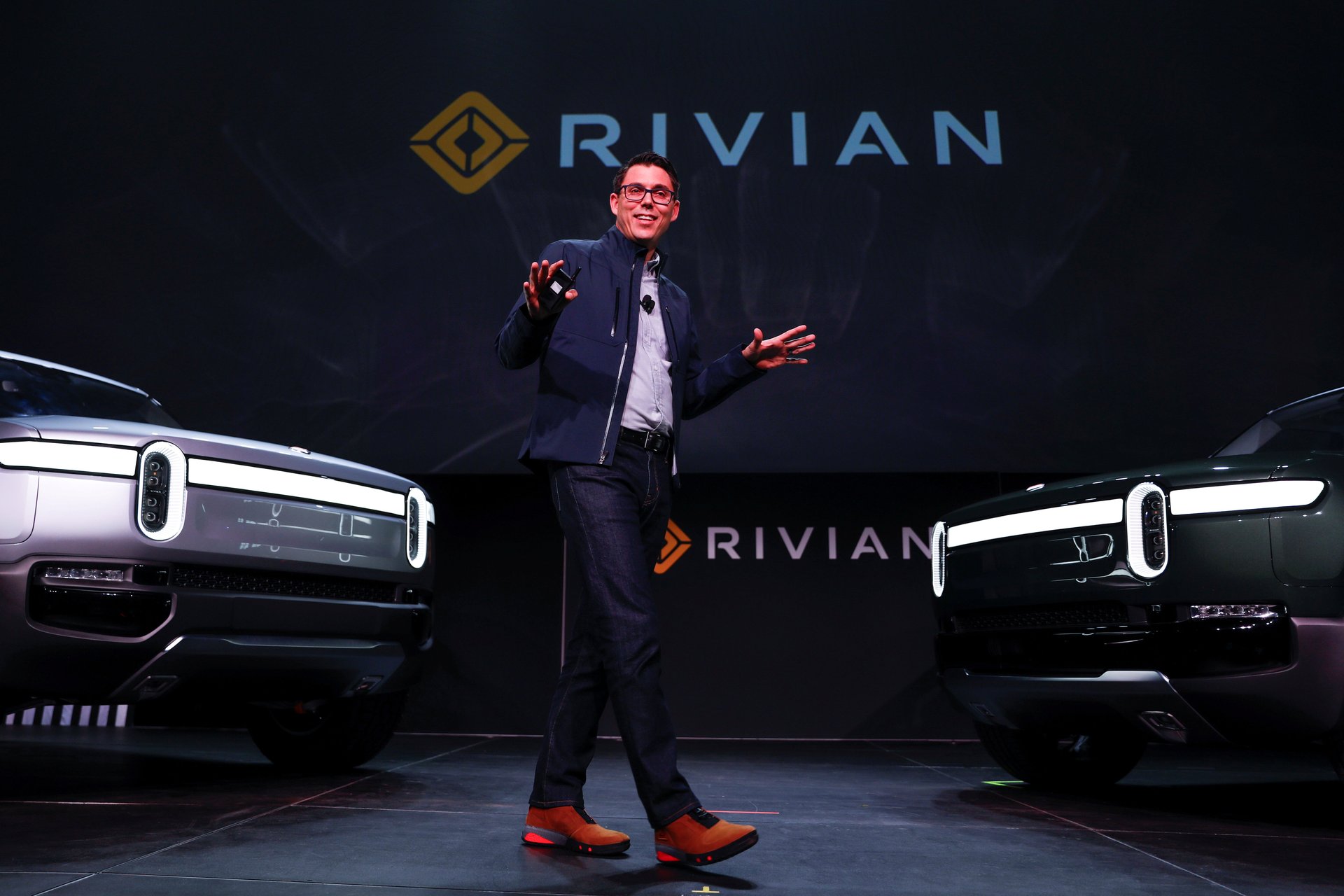Amazon is EV startup Rivian’s biggest investor—and its most important customer
Electric vehicle startup Rivian priced its initial public offering today (Nov. 9), marking one of the most highly anticipated stock market debuts of the year. The company, which makes electric trucks, has yet to turn a profit but was nevertheless valued at $64 billion ahead of its IPO, rivaling well-established car brands on the market like Honda.


Electric vehicle startup Rivian priced its initial public offering today (Nov. 9), marking one of the most highly anticipated stock market debuts of the year. The company, which makes electric trucks, has yet to turn a profit but was nevertheless valued at $64 billion ahead of its IPO, rivaling well-established car brands on the market like Honda.
The EV maker, which will trade as RIVN, priced its IPO at $78 a share, valuing the startup at at nearly $70 billion. At this share price Rivian will be the seventh-biggest US IPO on record, according to Bloomberg.
But the electric truck maker has racked up billions of dollars in losses over the past year and a half, and its initial success hinges on a serious lift from its biggest investor: Amazon. The e-commerce company has said it will purchase 100,000 Rivian vans for its delivery services by 2024, although it’s not clear the retailer is actually obligated to do so.
Rivian raised most of its capital in the last two years
When MIT engineering grad RJ Scaringe founded Rivian in 2009, his intention was to manufacture electric sports cars. The startup pivoted to SUVs and trucks in 2012 but didn’t attract any serious investments until 2017, when the carmaker received $450 million from funders including the Japanese investment group Sumitomo Corporation as well as the Saudi Arabian firm Abdul Latif Jameel.
The real game-changing investment for Rivian came in 2019, when Amazon led a $700 million fundraising round for the company and announced plans to order 100,000 delivery vans, said to be the largest purchase of light-duty EVs in history. Other big names like Ford, Cox Automotive, and BlackRock put money into Rivian in the years that followed. Amazon is Rivian’s largest investor, with a 22.4% stake in the company, while T. Rowe Price has the second-largest share, representing an 18.8% stake.
Today the company has raised $11.15 billion in private capital despite not yet having any cars on the market, according to PitchBook data.
The startup’s success hinges on orders from Amazon
While EVs don’t yet represent a significant share of the US automotive market they’re nevertheless viewed as a smart investment. Carmakers from General Motors to Ford are trying to catch up with Tesla, which is still by far the most popular EV brand.
But building new factories and mastering EV technology is expensive, a factor behind Rivian’s $2 billion loss over the past year and a half. In its S-1 filing, the startup attributed most losses to research and development, as well as costs associated with getting production lines ready to manufacture their vehicles. During the first six months of 2021 Rivian put nearly $2 million toward developing a manufacturing line at its new plant in Normal, Illinois, which launched production in April.
Rivian offers just two trucks so far and will face competition from more recognizable brands like Ford, which says it has received 160,000 retail reservations for its electric F-150 truck. The company says about 50,000 people have placed pre-orders for its trucks, but it expects a “significant portion” of its near-term revenue to come from Amazon’s planned delivery van order. There may be a wrinkle in this plan, though: While Rivian has given exclusive rights for its delivery vans to Amazon for four years after it begins filling orders, it’s not clear that the retailer actually has to follow through on its promise to buy the vans. Rivian said in the S-1 that the agreement with Amazon “does not contain a minimum order quantity or minimum purchase requirements,” and that purchase orders “are subject to modification or cancellation upon notice.”
On Nov. 5 the company posted an update to its website indicating Rivian would be taking fleet orders from non-Amazon companies starting in 2023. Neither Amazon nor Rivian have commented on the status of the aforementioned exclusivity period as of Nov. 9.
“The exclusivity clause of this agreement may significantly hamper Rivian’s ability to capture market share and allow more competitors to enter the EDV market uncontested,” the investment research firm New Constructs wrote in a Nov. 3 note recommending investors stay away from the company’s IPO. If the startup is unable to capitalize on the electric delivery van market, it may not be able to deliver on a core component of its business, which includes plans for commercial fleets as well as management software called FleetOS.